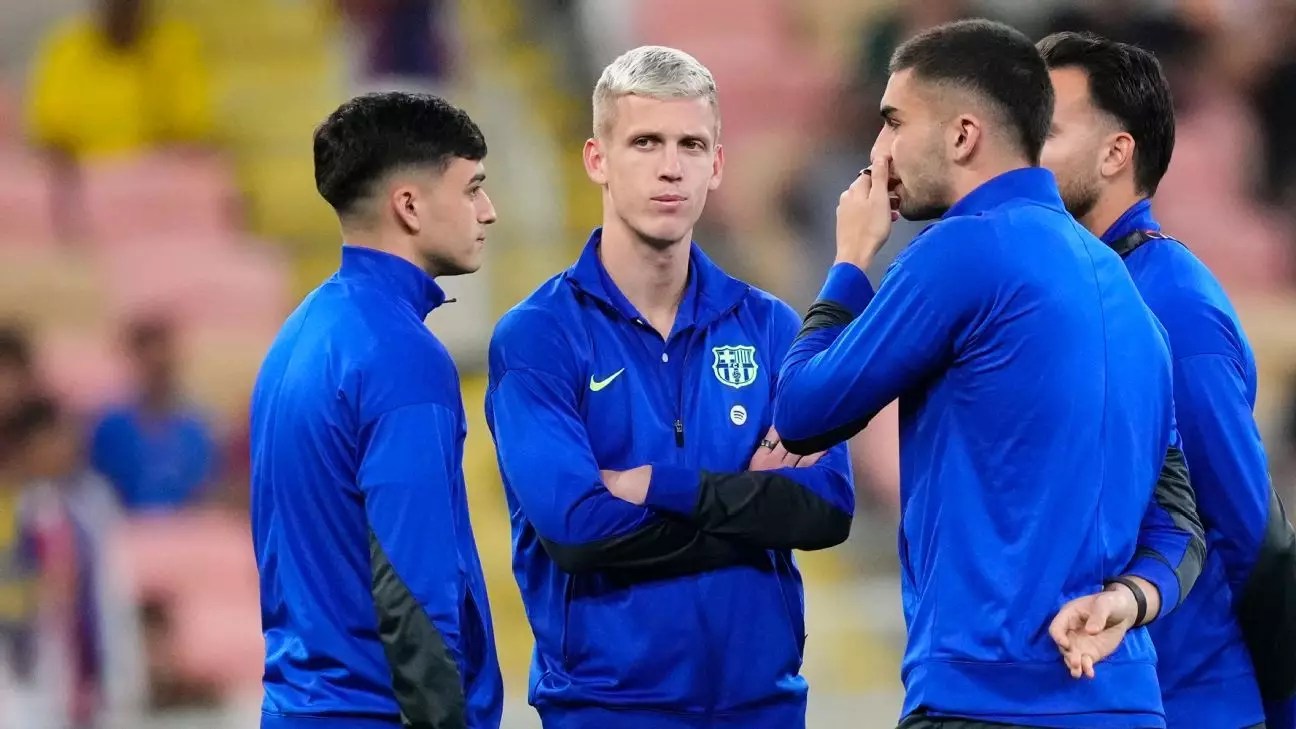The world of football is rife with intricate rules, regulations, and the constant balancing act of maintaining competitive integrity. Recently, FC Barcelona found itself at the center of a heated controversy regarding player registrations, stirring significant backlash from rival club Athletic Club. The situation arose after Dani Olmo and Pau Víctor were temporarily registered to play amidst ongoing discussions surrounding Barcelona’s financial compliance with LaLiga’s financial fair play (FFP) regulations.
Barcelona’s struggle with compliance traces back to their inability to meet a crucial registration deadline set for December 31. Failing to provide sufficient proof of adherence to LaLiga’s financial fair play rules resulted in the denial of registration for both Olmo and Víctor by the league and the Royal Spanish Football Federation (RFEF). However, in a surprising turn of events, Spain’s Sports Council (CSD) intervened, granting temporary registrations that allowed these players to participate while awaiting a definitive ruling.
Athletic Club’s president, Jon Uriarte, expressed outrage over this decision, labeling it as “grotesque.” His comments highlighted the disparity between governance bodies and the practical realities clubs face. Uriarte lamented the situation, indicating that while clubs are pressured to promote growth and endure logistical challenges—such as participating in international tournaments like the Supercopa in Saudi Arabia—they are simultaneously subjected to decisions that undermine competitive fairness.
Uriarte’s critique is not merely a reaction to loss; it reflects broader concerns within Spanish football regarding governance and transparency. The president’s statements underscore a sentiment shared by many—regulations that apply uniformly are crucial for maintaining the sport’s integrity. Athletic Club, being the sole publicly vocal entity concerning the CSD’s decision, has opened a dialogue about what it means for competition in LaLiga.
Moreover, Iñaki Williams, an Athletic forward, voiced concerns that the integrity of Spanish football may suffer as a consequence of such decisions. The notion that varying interpretations of rules exist for different clubs fosters an environment of distrust and confusion among players, officials, and supporters alike. Williams’ observations resonate with a deeper issue—the need for clearer communication about governance and policy in the realm of football, fostering a spirit of fairness and unity.
In the face of criticism, Barcelona’s sporting director, Deco, offered a defense of the club’s actions, suggesting that other clubs should reflect on their circumstances rather than scrutinize Barcelona’s unique situations. This response diminishes the gravity of Athletic’s concerns by shifting the focus back to internal club issues. Deco’s remarks highlight a common defense mechanism within football, where clubs often prioritize their interests, sometimes at the expense of addressing systemic issues.
LaLiga president Javier Tebas added another layer to the conversation by expressing his surprise at the CSD’s intervention while questioning the silence of certain governing bodies, including Real Madrid TV. This suggestion of partiality within governance raises critical questions about the representation of clubs in decision-making processes and speaks to the necessity for impartiality in football associations.
As Olmo and Víctor prepare to participate in upcoming competitions, the larger implications of this situation loom heavily over Spanish football. Whether or not the temporary registration of these players will set a precedent for other clubs remains to be seen. The necessity of clear and consistent policies becomes ever more pressing as clubs navigate the challenges posed by financial constraints and compliance with governing rules.
Moving forward, it is essential that LaLiga and the RFEF function transparently and collaboratively. Fostering an environment where all clubs are treated equally under regulations will be crucial to restoring public confidence. Furthermore, dialogue among clubs will encourage mutual understanding and accountability in governance, ultimately benefitting the game and its stakeholders at all levels. The recent events highlight the continuing complexities faced within the world of football—success on the field is equally matched by the necessity for fairness and harmony off it.


Leave a Reply